Best Optional Subject for UPPCS Mains: Complete Analysis
The UPPCS Mains exam plays a decisive role in a candidate’s final selection. Among the written papers, the optional subject is one of the most crucial components, carrying 400 marks (Paper VII & VIII). A wisely chosen optional can not only enhance your score but also improve your overall preparation.
In this article, we provide a complete analysis of UPPCS optional subjects, covering syllabus overlap, scoring potential, success rate, and strategies for choosing the best optional.
Optional subject = 400 marks, nearly 25–27% of total written exam marks.
A scoring optional can boost your rank and improve chances of selection.
Some optionals have significant overlap with GS papers, reducing preparation load.
Wrong optional choice can waste preparation time and lead to poor performance.
UPPCS offers a wide range of optionals including:
History
Geography
Political Science & International Relations
Public Administration
Sociology
Agriculture
Law
Economics
Philosophy
Psychology
Anthropology
Literature Subjects (Hindi, English, Urdu, Sanskrit, etc.)
Commerce & Accountancy
Zoology, Botany, Chemistry, Physics, Mathematics, Engineering subjects (for specialized candidates)
Interest & Background – Choose a subject you are genuinely interested in.
Graduation Background – If you studied a subject in college, you already have an advantage.
Syllabus Overlap – Some subjects overlap heavily with GS papers.
Availability of Resources – Check books, coaching, and study material availability.
Scoring Trend – Some subjects are considered more scoring in UPPCS.
Past Year Questions & Success Rate – Analyze toppers’ choice and marks trend.
High overlap with GS I (History, Art & Culture, Freedom Movement).
Static syllabus, less dependency on current affairs.
Scoring potential if prepared with maps and timelines.
Popular among humanities background students.
Best for: Students with history/political science background, or strong interest in India’s past.
Overlaps with GS I (Geography, Environment) & partly GS III (Disaster Management, Ecology).
Conceptual + diagram-based subject.
Requires strong map skills and analytical approach.
Technical in nature, may be tough for non-science students.
Best for: Students from Geography, Science, or Engineering background.
Heavy overlap with GS II (Polity, Governance, IR) & Essay paper.
Scoring and useful for Interview as well.
Requires good understanding of current affairs.
Best for: Students interested in polity, governance, and world affairs.
Compact syllabus, overlaps with GS II (Governance, Administration).
Practical and useful for civil service aspirants.
Scoring if answers are linked with current examples and UP-specific policies.
Best for: Aspirants from any background who want short and practical syllabus.
Easy to understand, scientific yet simple.
Overlaps with GS I (Society) & Essay.
Useful for Ethics Paper (GS IV).
Scoring with well-structured answers and examples.
Best for: Non-technical background aspirants, especially beginners.
Popular in UPPCS because UP is an agrarian state.
Many questions in GS papers overlap (Schemes, Rural economy, Farming issues).
Scoring if prepared with updated data (NABARD, ICAR, Govt. schemes).
Best for: Students from agriculture/science background.
Overlaps with Polity & Constitution (GS II).
Requires clarity of concepts and legal terminology.
Scoring for law graduates but tough for non-law background.
Best for: Law graduates, judiciary aspirants.
Very scoring if you have strong command over the language.
Syllabus includes prose, poetry, criticism, and linguistics.
No direct overlap with GS but useful for Essay.
Best for: Literature graduates or those passionate about languages.
Most Popular Optionals in UPPCS: History, Geography, PSIR, Public Administration, Sociology, Agriculture, Hindi Literature.
High Success Rate Optionals: Sociology, Agriculture, Hindi Literature, Public Administration.
Safe Choices (due to overlap): PSIR, History, Geography.
Understand the Syllabus Thoroughly – Avoid going beyond syllabus.
Practice Previous Year Papers – Many questions repeat with slight variation.
Use Diagrams, Maps, Flowcharts – Especially in Geography, Sociology, Public Administration.
Incorporate Current Affairs – Link answers with UP-specific schemes and examples.
Revise Regularly – Prepare crisp notes for fast revision.
Practice Writing in Hindi/English – Stick to your chosen medium.

Lakshya IAS
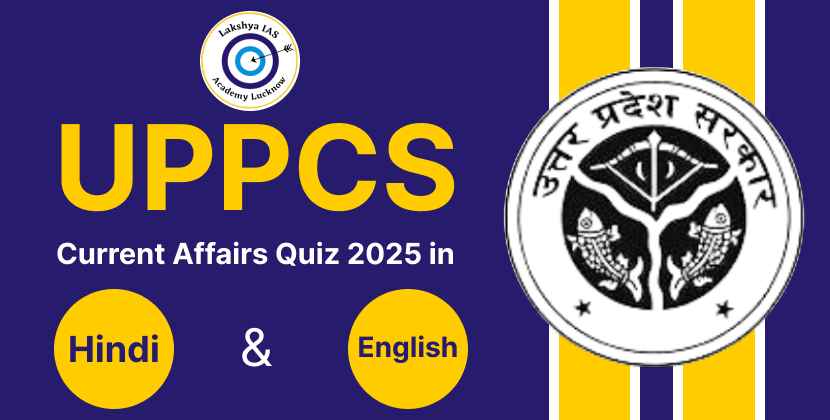
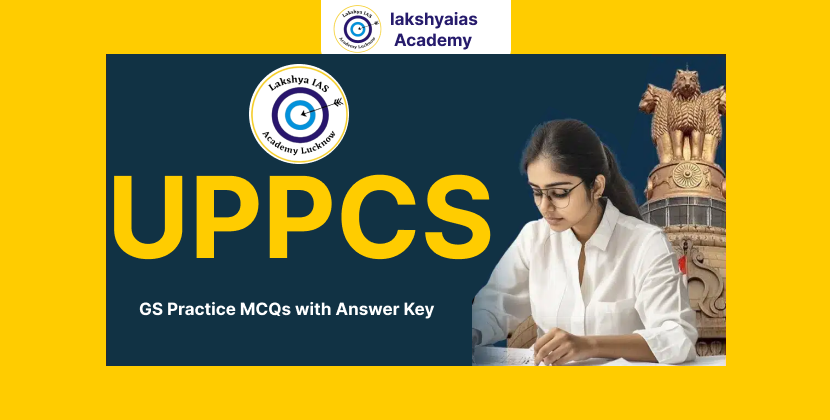
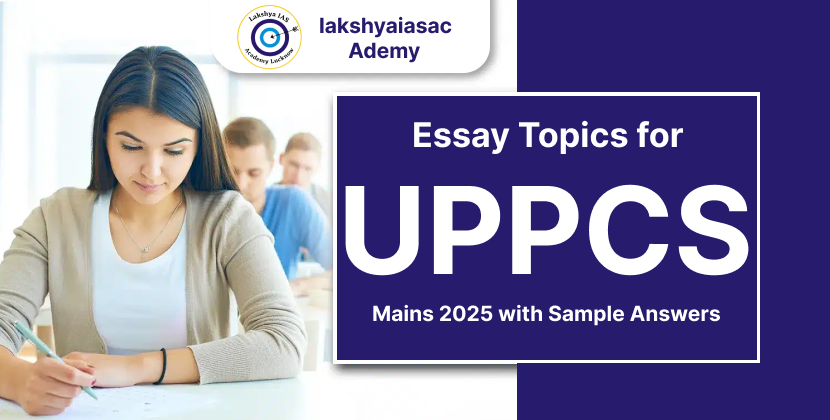
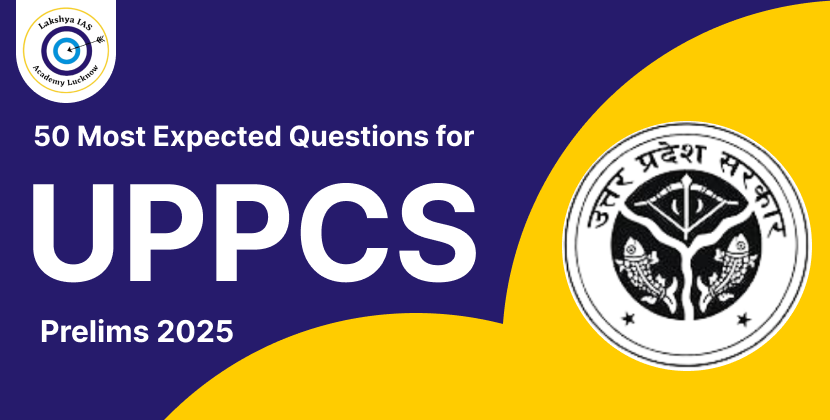
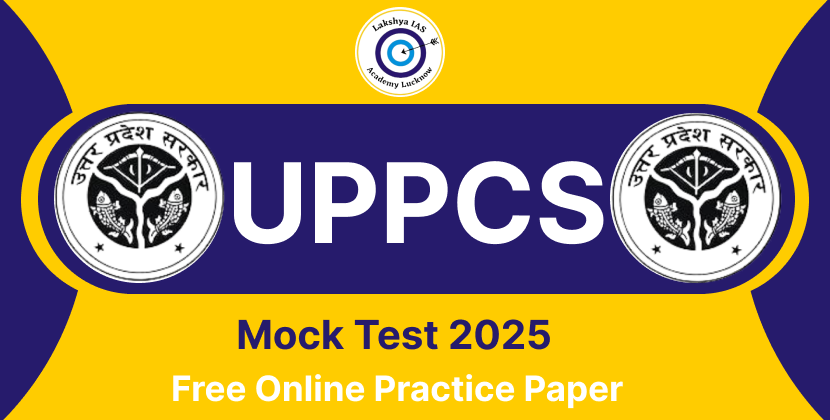
.png)
.png)

.png)
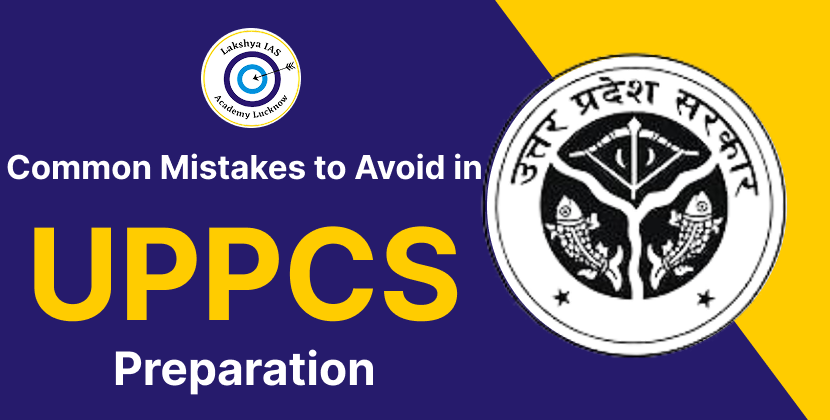
Leave a Comment